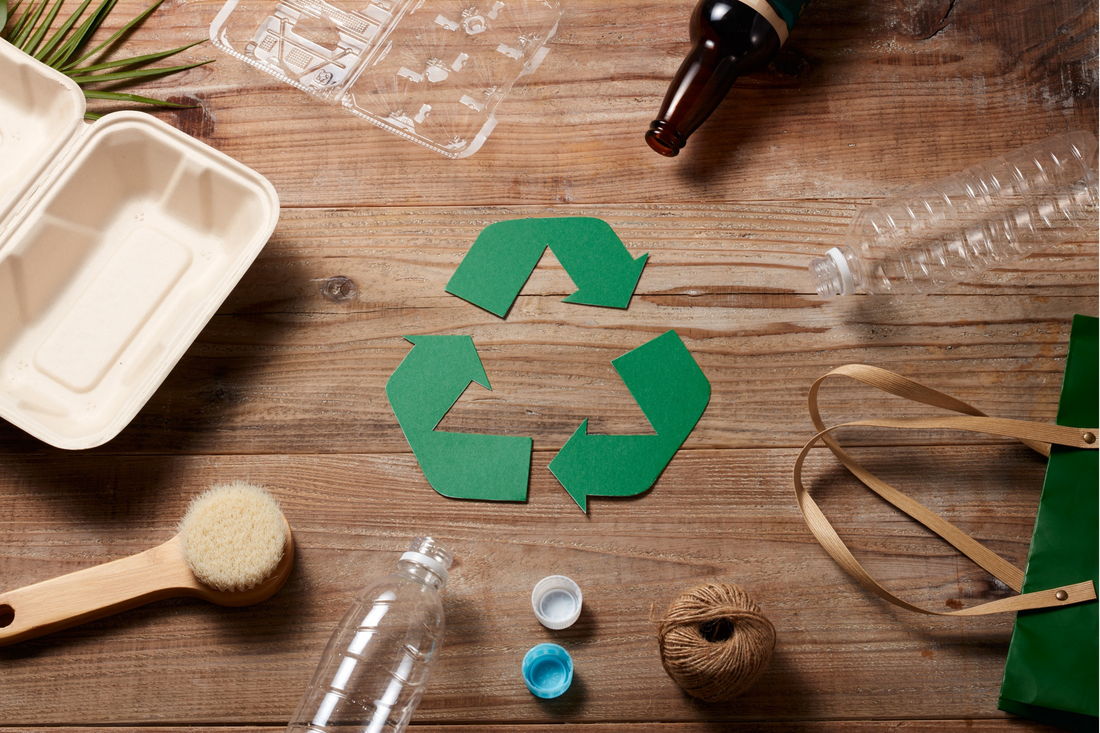
Plastic vs. Leather Pet Accessories: A Thoughtful Choice
Am I biased? Probably.
But since day one, building The Gentry has always meant doing things responsibly — with sustainability, transparency, and long-term thinking at the heart of every decision.
From the design of our products to the materials we choose and how we source them, I’ve held myself accountable. After all, if we say we care about the planet, shouldn’t that show in what we make and what we buy?
Let’s talk about the big debate in pet accessories: plastic vs. leather.
First, Why Plastic Seems Like the Perfect Material
Let’s be honest — plastic has a lot going for it.
From both a consumer and producer’s perspective, it’s incredibly convenient:
-
✅ Cheap to produce
-
✅ Durable and long-lasting
-
✅ Doesn’t fade or lose colour
-
✅ Lightweight
-
✅ Mouldable when heated
As a consumer, I can buy a decent-looking collar or lead for £10–£20. It’s waterproof, easy to clean, and it won’t wear out anytime soon.
As a producer, I can order plastic in bulk for next to nothing, cut it to shape, and avoid expensive local labour. From a business standpoint, it makes sense.
But when I started exploring what it means to build a responsible brand, I noticed a troubling trend: many companies talk about sustainability, but few show how their materials are sourced or produced.
There’s a lot of greenwashing out there.
And I get it. I’ve bought the £12 waterproof collar before. It’s practical. It works. But here’s the real question:
Is Convenience Enough to Justify the Cost to the Planet?
Those "great" features of plastic? They're also what make it so damaging.
Let’s look deeper:
🟡 Cheap to produce
Most plastic is produced in Asia, often with underpaid labour and little environmental regulation. Then it’s shipped across the globe, racking up a huge carbon footprint.
🟡 Indestructible
That’s great until it ends up in our oceans. We’ve all seen the damage — polluted waterways, wildlife affected by microplastics, and waste that won’t break down for centuries.
🟡 Colour retention
Yes, the colour lasts. But colouring plastic involves high heat and harsh chemicals that aren’t exactly eco-friendly.
🟡 Heat-mouldable
Every time plastic is reshaped, it requires energy. Heating = emissions.
I’m not saying I never use plastic — that would be unrealistic. But I try to be mindful. And when it came to starting a business, I knew I had to do things differently.
So What About Leather?
Is leather sustainable? Honestly — it depends.
It can be. But only if a few key things are done right:
-
🌍 Country of origin – How far does it travel? The closer, the better.
-
🛠 Production methods – Handcrafted or mass-machined?
-
🌿 Tanning process – Chrome tanning = fast but harmful. Vegetable tanning = natural and safe.
-
♻️ Leather quality – Full-grain vs bonded. Bonded is often filled with plastic.
-
🥩 Byproduct status – In the UK, leather is a byproduct of the meat industry, which means using it reduces waste.
-
🪱 End-of-life – Proper leather can biodegrade. Plastic can’t.
What We Do at The Gentry
Every leather item we make is the result of careful sourcing and traditional craftsmanship.
-
🇬🇧 We hand-select small-batch, UK-produced hides
-
🥇 We use full-grain leather — the highest grade
-
🌿 Our leather is vegetable tanned using only plants and herbs
-
✋ Each item is crafted by hand with traditional tools — no machines, no shortcuts
Yes, this costs more. But it also lasts longer, ages beautifully, and supports a more sustainable future.
We believe in this approach: Buy less, but buy better.
In Summary
Plastic is easy. It’s cheap. It’s durable.
But is it the right long-term choice — especially when better alternatives exist?
At The Gentry, we’re not here to shame anyone for their choices. We just want to offer a more thoughtful alternative, and give you the facts so you can decide for yourself.
If plastic still feels right for you, that’s completely okay. I just hope this added a little insight into why we do what we do — and maybe, next time you shop, you’ll pause for a moment and consider the impact behind the product.
Thanks for reading.
— The Gentry